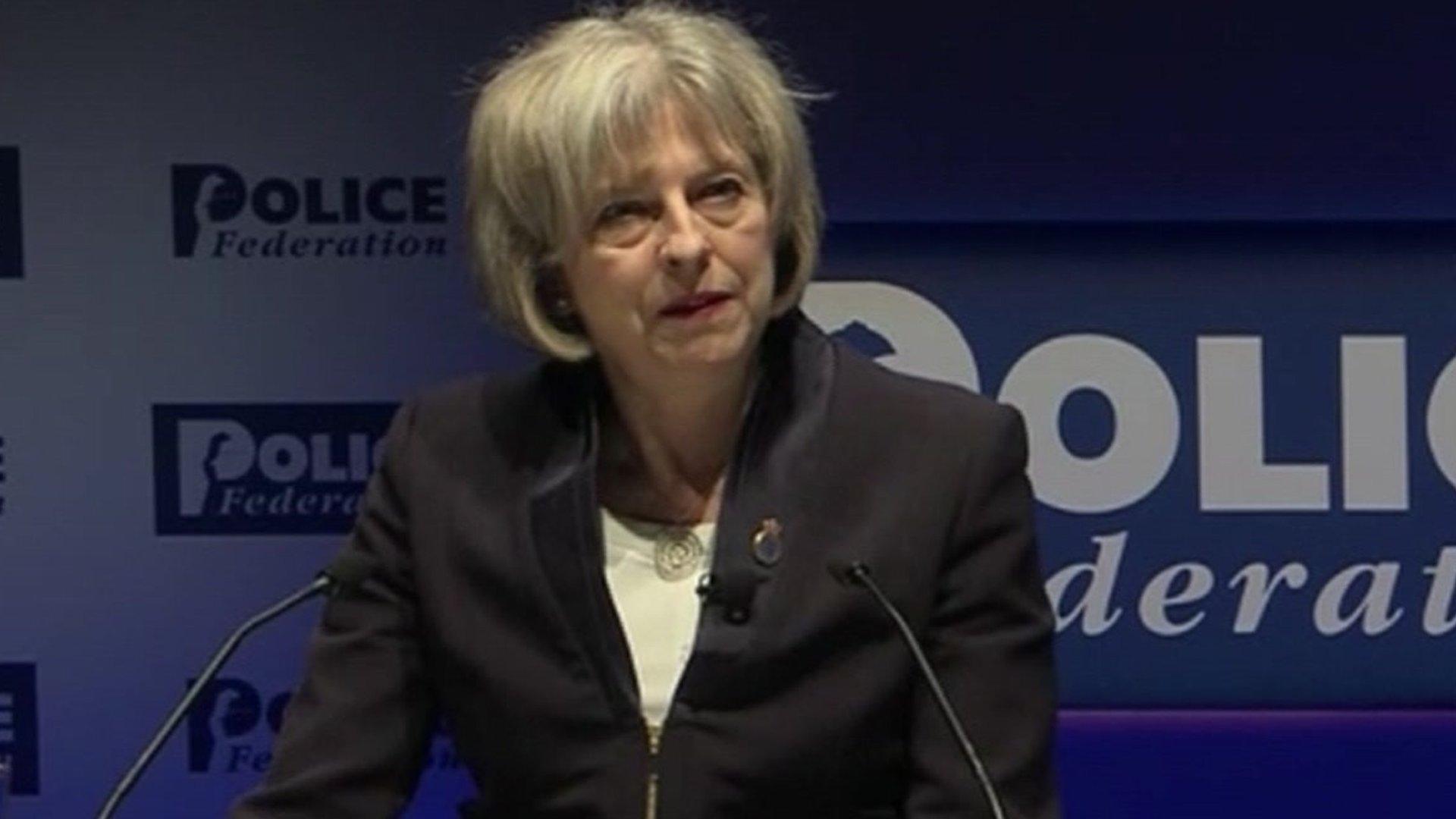Volunteer army may swell police service ranks
- Published
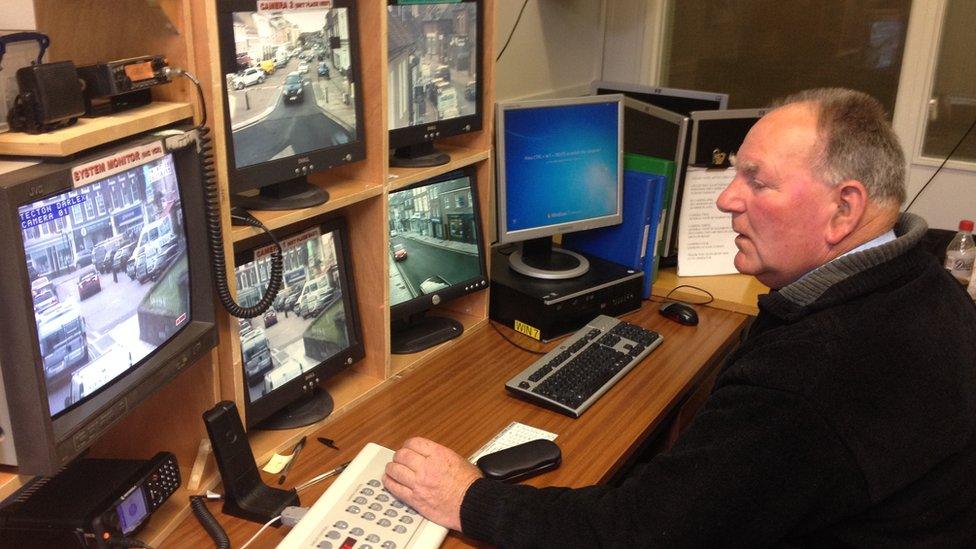
Alan Hunt monitors CCTV footage on Friday and Saturday nights
Most people don't choose to spend their weekends at a police station.
But Alan Hunt does.
Every Friday and Saturday night, between 19:30 and 04:00, you will find the cheerful pensioner in a back office at Blandford Forum police station in north Dorset.
His "job" is to monitor footage from four CCTV cameras covering the centre of Blandford, a bustling market town notable for its distinctive Georgian buildings.
At closing time, with people making their way to and from Tiffany's, the town's only nightclub, Alan comes into his own, scrutinising a bank of TV screens for signs of trouble on the streets.
He is patched into the police radio system and alerts officers when they're needed on the ground.
"Somebody bit somebody's ear off," says the 73-year-old, recalling the worst thing he's seen in the five years he has been doing the role. "There was a chap with a knife once," he adds.
The retired builder and road-sign maker is Dorset Police's most prolific volunteer.
The unpaid work he does for the force fulfils an ambition he has nursed since childhood.
He says: "When I left school that was my original intention - to go into policing, as a student. But unfortunately we were not a very rich family so my mother said, 'You've got to stay at home and earn some money.'"
There are 400 other police volunteers in Dorset. Half work in staff roles, like Alan Hunt; half are special constables, with the full powers of police officers.
Martyn Underhill, the area's police and crime commissioner, wants to increase volunteer numbers and expand what they're able to do.
He says: "I see it as a fantastic resource. As Robert Peel said, 'The public are the police, the police are the public' - this brings diversity, it brings additionality, it brings great scope to policing I believe in".
Greater role
The Home Office also wants to extend the role of police volunteers.
A consultation closed in October on plans to give them a wider range of powers and create the volunteer equivalent of Police Community Support Officers (PCSOs).
The proposals are expected to be included in the Policing and Criminal Justice Bill later this year.
Theresa May, the Home Secretary, writing in the consultation document, external, says unpaid police staff play a "vital role in community safety" but there is "more that volunteers can do".
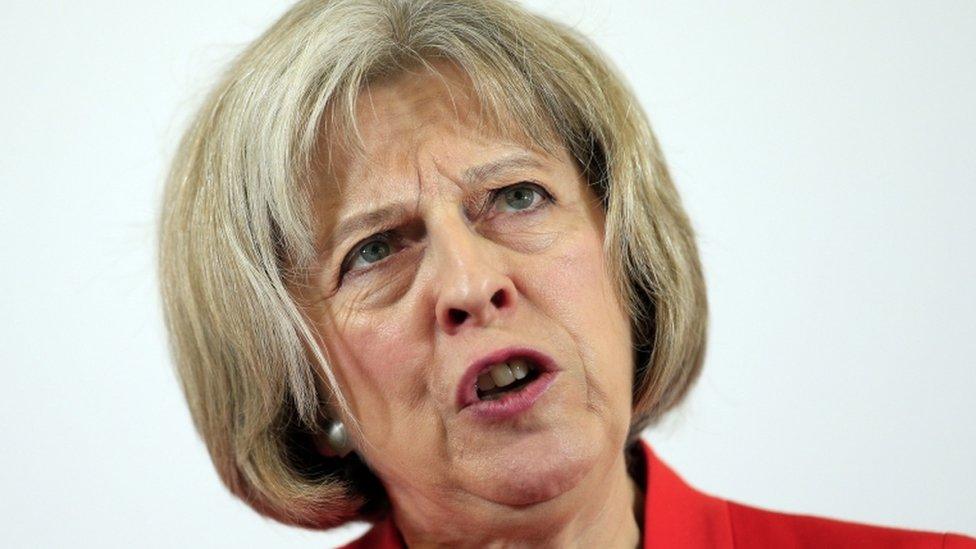
Theresa May wants more volunteers to work with the police
Mrs May says she wants to encourage people to get involved in policing if they have "skills in particular demand" such as accountancy and IT, in order to help forces investigate cyber-crime and fraud.
I met Adam, 37, one of this new breed of police volunteers at the central London offices of the National Crime Agency (NCA).
He didn't want me to know his surname because of the sensitive nature of what he does.
His paid job is a security adviser for an insurance company that allows him to attend NCA meetings and carry out special projects - it builds up his experience, improves his CV and helps the NCA catch criminals.
"Because I've got quite a lot of experience in IT, I see things maybe somewhat different to how they would," says Adam, who had to be vetted before taking on NCA duties earlier this year.
He wouldn't take a paid job with the NCA because he can earn significantly more in the private sector - but the benefits for the NCA of being able to tap into such expertise for free are clear.
The organisation receives about 50 applications from volunteers each week, 10% of which are successful.
Sensitive issue
But at a time when the paid police workforce is shrinking, the recruitment of volunteers is a sensitive issue.
Unison, one of the trade unions that represents PCSOs and other police staff, is concerned the Home Office proposals are simply a cheap way of plugging gaps in the police service resulting from government cuts; 37,000 posts have been axed since 2010, and thousands more are projected to go over the next five years.
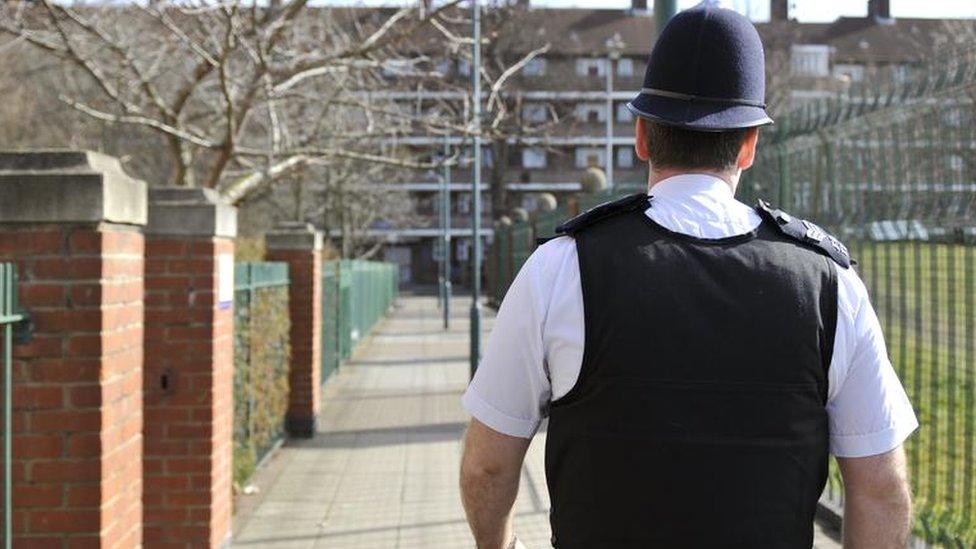
There are concerns that policing should be left to professionals
Ben Priestley, Unison's national officer for police and justice services, says a "Home Guard" of 9,000 volunteers has been "quietly recruited" to backfill roles that have been lost, raising concerns about competence and accountability.
"There's a general question about whether the general public believe that policing should be carried out by, in many cases, well-meaning amateurs," says Mr Priestley.
"Policing is a serious business, dealing with serious crime, and our members who work as police staff are fully trained, they're fully vetted and they're very, very committed to the job they do.
"If you're a volunteer, you're not under the direction and control of a chief constable, as police staff and police officers are, and that's a very real problem, and I don't think the general public would be happy about that."

Police volunteers
There are currently 16,000 volunteer police officers in England and Wales, known as special constables.
Specials undergo training, wear police uniform and have the same powers in law as their "regular" colleagues.
They tend to do mainstream policing, such as foot patrol, crowd control and crime prevention, rather than specialist work, and have to be available for at least 16 hours each month.
In addition, there are 9,000 volunteers performing a wide variety of different staff jobs in the police.
The union Unison, which surveyed police forces last year, says Kent has the largest number of volunteers (850), while volunteers in Thames Valley put in the most hours (70,000).
The survey identified more than 60 volunteer roles, ranging from mountain rescue to animal welfare, crime scene investigation to firearms licensing.
Unison says most of the 43 constabularies are planning to increase their use of volunteer police staff, including Nottinghamshire, which is aiming for a fivefold rise by the end of 2015.

At Dorset, Mr Underhill says a "complete complaints system" is in place for volunteers, though it's seldom needed.
He says the recruitment of volunteers is not driven by austerity - at least in his constabulary - but is a way of supplementing the work of paid staff.
That's certainly in evidence at Dorset Victims' Bureau, based at Bournemouth police station, where employees and volunteers work side by side, updating crime victims about their cases and giving them advice.
Whatever the objections, the financial realities of policing are such that this partnership between police and citizens will become even more of a feature of law enforcement in the years ahead.
- Published22 October 2015
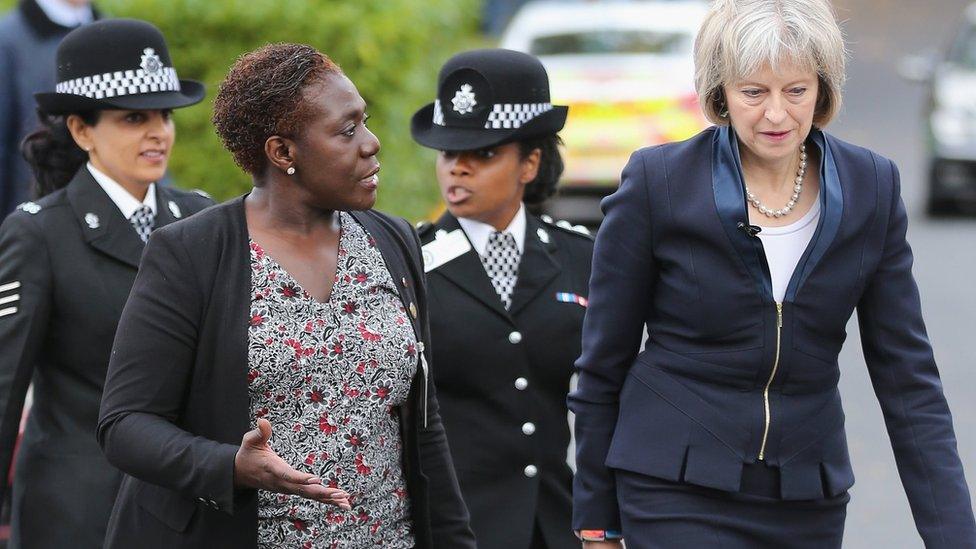
- Published30 June 2015
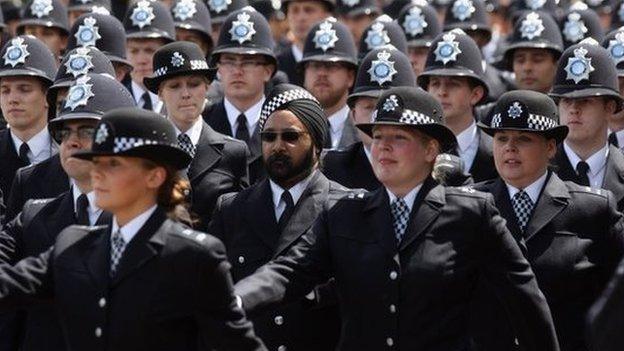
- Published20 May 2015
